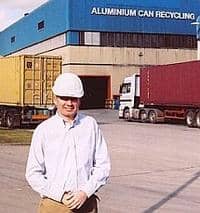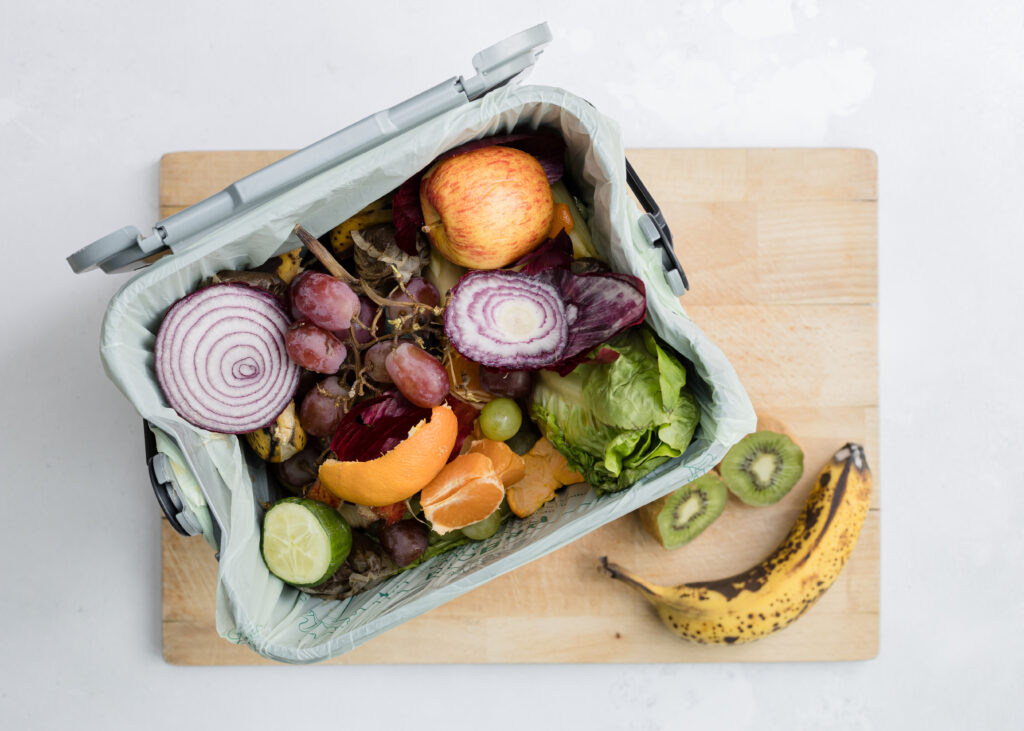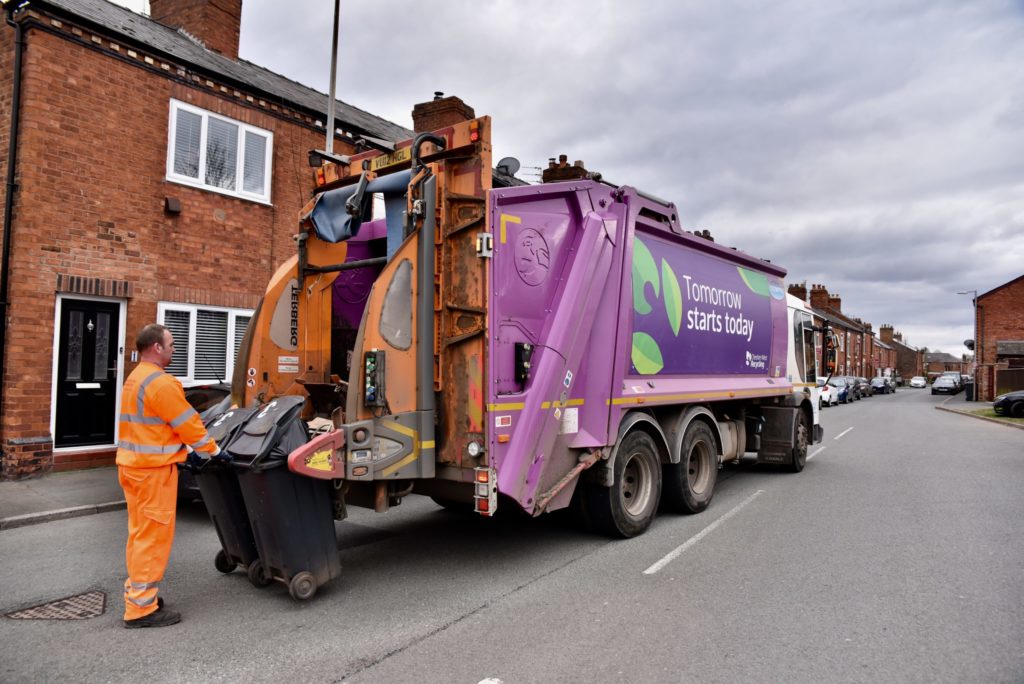Because the acquisition of Pechiney would have seen Alcan taking as much as 80% of the market for aluminium rolled products, European competition rules meant the firm had to split.
Alcan shareholders were given shares in the new company, Novelis, but the two effectively became entirely separate companies on January 6, 2005. The two companies even compete in various markets, including in the manufacture of new aluminium cans.

Novelis Recycling national manager, Rick Hindley
While the original Alcan employed about 84,000 people in 37 countries, Novelis now has 14,000 employees in 12 countries. Although nominally Canadian – and with a head office in Atlanta, USA – Novelis is much more dominant in Europe than Alcan, which is more dominant in North America.
Alcan's can recycling arm, Alcan Aluminium Can Recycling, has now become Novelis Recycling, and national manager Rick Hindley is working with his team to ensure suppliers are not fazed by the identity switch.
Novelis owns the only aluminium can recycling plant in Europe at Latchford Locks, Warrington, which is therefore important not just for the UK's Packaging Directive obligations but also several other countries' obligations, including Sweden where the Warrington plant takes cans from the Swedish deposit scheme.
The Warrington plant now recycles 90,000 tonnes of cans into ingots, which are then sent to Novelis plants to be turned into new cans as well as a variety of other products for the automotive, printing, mass transport and construction sectors.
The Warrington plant takes in used beverage containers from all over Europe and from the rest of the world, and hopes are to expand this further still. Mr Hindley says, “In 1989, the plant was set up to produce 50,000 tonnes a year, but improvements in skills and efficiencies have increased that.”
Out of the 90,000 tonnes of aluminium cans that are melted each year in Warrington, only 15,000 to 16,000 tonnes comes from the UK – the rest come from Europe and abroad. Since Novelis places about 84,000 tonnes of new material on the UK market each year – and the UK is the largest market in Europe for aluminium cans – the company can see there is room for improvement.
Mr Hindley says Novelis would ultimately like to increase the capacity of the Warrington plant and source far more used beverage cans (UBCs) from the UK, but this is an expensive undertaking.

Cans from all over the world are shredded to the size of 50p coins before being de-inked and melted
“In the long term, it is cheaper to make cans through recycling,” he says, “but there is a caveat to that: cans from the UK are costing a lot of money, because of our need for investing in infrastructure. There is PRN revenue, but Novelis is having to invest over and above that.”
The trouble with aluminium packaging waste, as opposed to other packaging waste materials, is that it only really arises among consumers – in households, offices and schools. While businesses in the commercial and industrial sector have been encouraged to separate packaging waste for recycling because doing so saves them money, it has been more difficult to grow recycling rates in the municipal waste stream.
Mr Hindley says the UK needs about 25,000 tonnes of additional aluminium can recycling by the Packaging Directive target date of 2008 – as much as the total amount of domestic reprocessing in the whole of 2003. “Unless something changes dramatically, a lot of the materials will struggle to meet the 2008 targets,” he says.
“We have to achieve a 32% recycling rate – it is 50% for metals under the Packaging Directive, but we lobbied for a lower target than steel because steel has a bigger presence in industrial packaging. We are still committed to reaching the 50% metals target and we are very closely working with Corus on that.”
About 12 to 14,000 tonnes of the required growth in collections will have to come from the local authority sector, he says, while much of the remainder must come from the “away-from-home” sector, where 34% of cans are consumed.
Schools and community groups are also being encouraged to get involved – with 45p per kilogramme being offered for collected cans through the Cash for Cans programme. Novelis has also been working with WRAP and materials organisations including Recoup to strengthen the collection of recyclable packaging from the workplace. The “Recycle Zone” partnership is a project to increase can collection away from home.
About 40,000 people participated in the scheme in Luton, Redbridge, Newport and Newcastle between April and December 2004. Many offices reported savings in waste management bills of 10-20% by recycling.
Councils
Local authorities, on the other hand, ought to have mandatory collections for packaging, Novelis believes. But with targets stemming from the Landfill Directive now dominating councils' recycling agendas, Mr Hindley can see why councils may not want to invest in non-biodegradable material collections.
With the potential multi-million pound fines from the Landfill Allowance Trading Scheme drawing local authority attentions towards the collection of green waste and kitchen waste rather than cans or packaging, he says there are concerns about the next few years.
One answer in the future might be some sort of deposit scheme – such as the scheme operating in Sweden, from which Novelis receives cans. But, after the can producers had their fingers burned through the German deposit scheme in the last few years, such a scheme would need to be carefully thought out, and Mr Hindley says it would only be a distant possibility for the UK.

Aluminium is cast into ingots, each large enough to make 1.5 million new cans
A more realistic goal for the UK would be to set up incentive schemes for householders to recycle their packaging and Novelis is already working with Tesco on an innovative scheme using a “reverse vending machine” at the chain's Winchester store.
In the mean time, Novelis sees marketing as its major weapon to keep local authorities increasing their collections of cans, and is doing its utmost to stress the financial benefits councils can gain in doing so.
“Aluminium assists with a kerbside scheme's viability,” Mr Hindley explains. “Although aluminium only makes up 1% of the waste stream, it has by far the highest value for any recyclable material – we are offering £700 per tonne for aluminium cans. Local authorities can't afford not to collect cans.”
The key to recycling growth is infrastructure and convenience, he says. But while the national Recycle Now campaign has its television advertising focussed on the recycling of cans, metal packaging reprocessors have found little in the way of support from the government or WRAP for boosting collections. This is because – as with the textiles recycling sector – WRAP's policy is that there is no market failure in metal recycling and therefore no need to provide assistance.

Novelis is working with WRAP's ROTATE team at grass roots level, however, to try and boost local authority collections.
One big opportunity on the horizon for boosting can recycling will be new technologies, Mr Hindley says, like mechanical biological treatment (MBT). “Extraction from municipal solid waste has huge potential,” Mr Hindley says. “More and more councils are interested in things like MBT.”
Quality
Even before councils embark on new technologies, however, contamination is already a major problem for Novelis, particularly with domestically sourced cans. Even though tens of thousands of tonnes of cans are coming to Warrington from as far afield as Finland, Norway and Sweden, Mr Hindley reveals that it is cans from the UK that are the dirtiest.
Novelis is working hard with suppliers to minimise contamination in supplied cans
Contamination is usually in the form of rogue plastics, which disrupts the can recycling process where cans are heated to remove the labels. The presence of plastics makes the equipment overheat, then cut out.
Novelis does accept poorer quality UBCs, but pays a lower price for these in order to pass on the costs of cleaning the cans. But the company is undertaking a major programme with more than 400 suppliers to try and reduce the amount of contamination in bales of cans delivered to Warrington.
“Quality is key,” Mr Hindley says. “We've had some real problems with material recycling facilities – we've had some success, but equally there are some problem areas.”
He explains that eddy current separators – automatic separation equipment used in MRFs – separate out non-ferrous material, but not necessarily just cans. “People in MRFs are either over-loading the machines or not setting them up properly, making overly sensitive so that things like crisp packets get in among the cans.” MRFs need to have pickers as a last line of defence to make sure rogue plastics don't get in.
Mr Hindley adds: “Sometimes it is something as straightforward as someone using a baler for aluminium and plastic, but not cleaning it out in between.”
Progress
Despite all the difficulties, progress is being made. “We used to be really worried, but councils are beginning to take up cans and we are getting there,” Mr Hindley says.
Working with packaging producers' organisation Alupro as well as more than 400 suppliers and 50 “thinkcans” partner collection sites, he says Novelis Recycling is “leading the growth”.














Subscribe for free